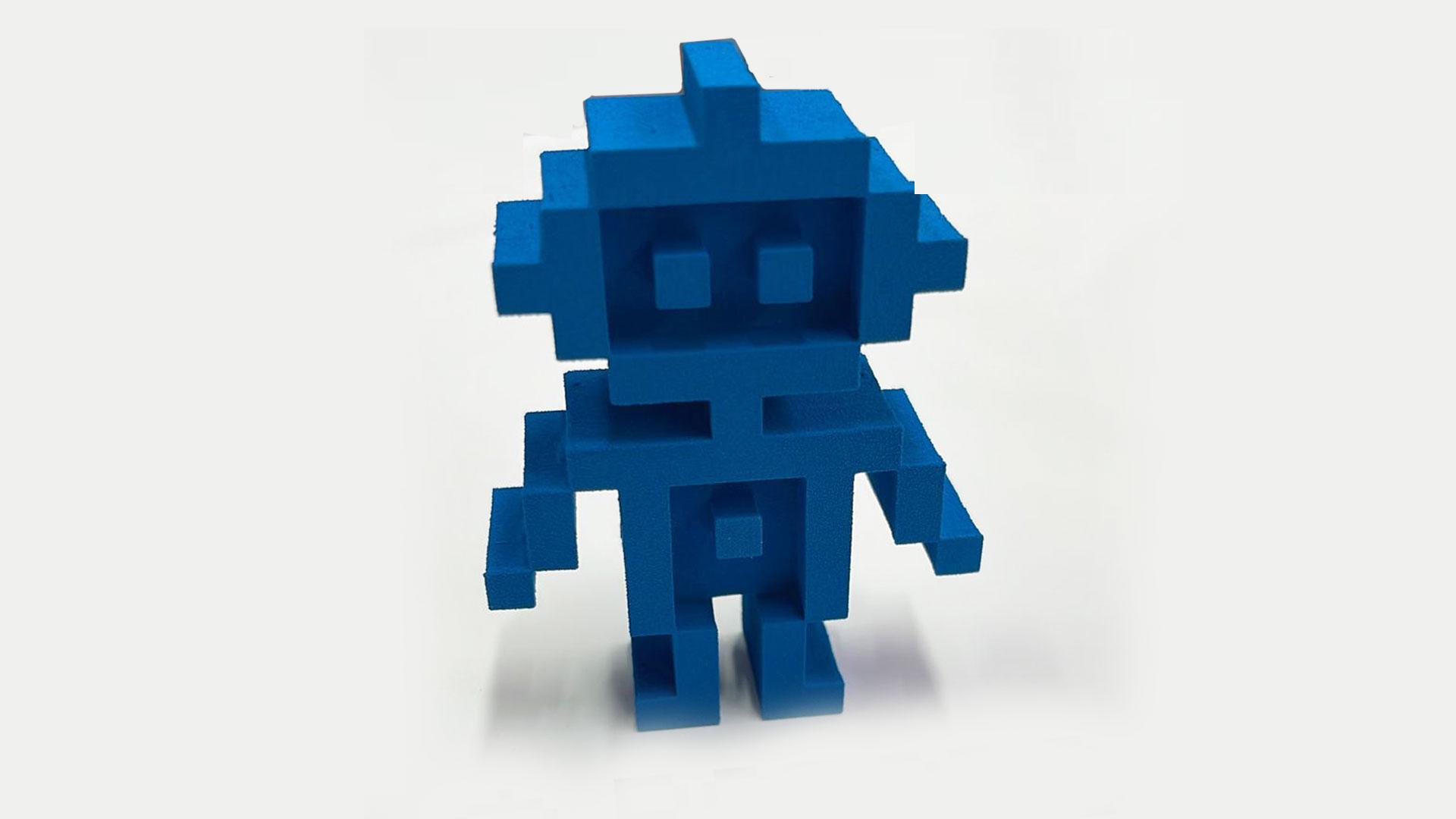- Date
March 15 to 20, 2022
- Tuesday to Friday
10 am - 6 pm
- Saturdays
9 am - 7 pm
- Sundays and holidays
9 am - 6 pm
- Fee
Free
- For early booking (optional)
Robotics, Technology, and Education
From March 15 to 20, Japan House São Paulo promotes ‘Robot Lab’, an unprecedented initiative that presents the robotics universe through a free program that includes an exhibition, a robot sumo presentation, workshops, and lectures with experts from the Brazilian and Japanese academic and industry sectors. The event has support from the Consulate General of Japan in São Paulo, JETRO, the Mauá Institute of Technology, NEC, Mitsubishi Electric, Pilot, and ZOOM Education For Life.

Roboto(ロボット) means robot in Japanese. The adapted version of the Japanese pronunciation represents the space for introduction to robotics, which is being held at Japan House São Paulo. With a high tech expography that recreates the atmosphere of engineering and experimental technology laboratories, ‘Robot Lab’ offers a complete immersion into the world of robotics, a place where visitors can interact with a panel that displays an “X-Ray” of the robots, control the machines, and watch mechanical arm demonstrations, in addition to several other activities.
The exhibition dedicated to the theme showcases the history and basic concepts of robotics, and features an overview of how these principles influence everyday life.
Roboto Lab
To complement the program, Japan House São Paulo also presents four lectures to be delivered by renowned experts and researchers in robotics and technology in Brazil and Japan on its YouTube channel.
Cycle of Lectures
The first lecture is scheduled for March 15, and is themed “Robotic competitions and their application in society”, with Prof. Dr. Anderson Harayashiki Moreira, from the Control and Automation Engineering course at the Mauá Institute of Technology, and Associate Professor Yasunori Takemura, from the Nishinippon Institute of Technology.
On March 16, Jaime Perroti, a Marketing Specialist from the Mitsubishi Electric Industrial Automation area; Professor Fernando Madani, Coordinator of the Control and Automation Engineering course at the Mauá Institute of Technology, and mediator Eric Klug, Chair of JHSP (who holds a degree in Mechatronics Engineering from the University of São Paulo - 1993), will discuss the use of robots within an industrial productive environment.
On March 17, meanwhile, the specialist in Japanese robotics Shoko Takahashi, CEO of Incubion, and mediator Dr. Anderson Harayashiki Moreira, from the Control and Automation Engineering course at the Mauá Institute of Technology, will discuss, in the lecture “Robot Experience Design - How to live with robots?”, the day-to-day practices for coexistence between man and robots.
On March 18, closing the lecture cycle, under the title ‘Innovation and Technology: Ties between Brazil and Japan,’ Cristiano Blanez, the Innovation Officer at NEC in Brazil; Tatiana Nagamine, Economic Analyst at JETRO São Paulo’s Innovation and Invest Japan programs; Antonio Makiyama, CEO of the Brazilian startup VIVAX, and mediator Eric Klug, Chair of JHSP (who holds a degree in Mechatronics Engineering from the University of São Paulo - 1993), show how innovation and technology have created bridges, including commercial ones, between Brazil and Japan.
Cycle of Presentations, Workshops, and Activities
For the Robot Sumo presentations, which are scheduled for March 19 and 20, Japan House São Paulo welcomes university teams from São Paulo, Rio de Janeiro, Minas Gerais, Bahia, Paraná, and Amazônia, under the technical coordination of the Mauá Institute of Technology.
The activities are conducted in a Dohyo (space intended for battles, created especially for the ground floor of the institution) with the participation of the Celso Suckow da Fonseca Technological Education Center (Wolfbotz); the Sorocaba College of Engineering (Omegabotz); the Mauá Institute of Technology (Kimauanisso Robotics Team); the National Telecommunications Institute (Robot Bulls); Team Prodixy (Sesi Robotics Team – AM); the University of São Paulo (ThundeRatz); the State University of Campinas (Unicamp Phoenix Robotics Team); the Federal University of ABC (Tamandutech and Project Neon Teams); the Federal University of Rio de Janeiro (Minervabots), and three other private groups without ties to universities: Robotic RSM, Raiju, and Parallel Team.
The first floor of the institution serves as a laboratory for the teams to prepare and make technical adjustments to the robots for the presentation, and it is open for visitation to those interested in learning more about this process.
Check out the full program (in Portuguese)
To the Chair of Japan House São Paulo, Eric Klug, the event represents a milestone in the institution’s history: “This is the first time that we have brought together in a project such symbolic and relevant elements in Japan as technology, sports, and education. With Roboto Lab, we will put the limelight on the work being done in the field of robotics and technology in Brazilian universities and Japanese companies, and we hope to encourage careers in the so-called STEM (Science, Technology, Engineering, and Mathematics).”
Accessible JHSP
As part of Accessible JHSP, an initiative aimed to create equitable opportunities for diverse audiences, sign language and audio description resources are available for a few ‘Roboto Lab’ activities.
–
Service:
‘Roboto Lab’ Activation
Ground floor
Period: March 15 to 20, 2022
Cost: free admission
The exhibition has accessibility features.
Advance online reservations are optional, but recommended: https://agendamento.japanhousesp.com.br/
Japan House São Paulo
Address: Avenida Paulista, 52 – Bela Vista, São Paulo
Opening hours:
Tuesday to Friday, 10 am to 6 pm
Saturdays, 9 am to 7 pm
Sundays, and banking holidays, 9 am to 6 pm
Japan House São Paulo remains closed on Mondays, without exception, including on holidays.





